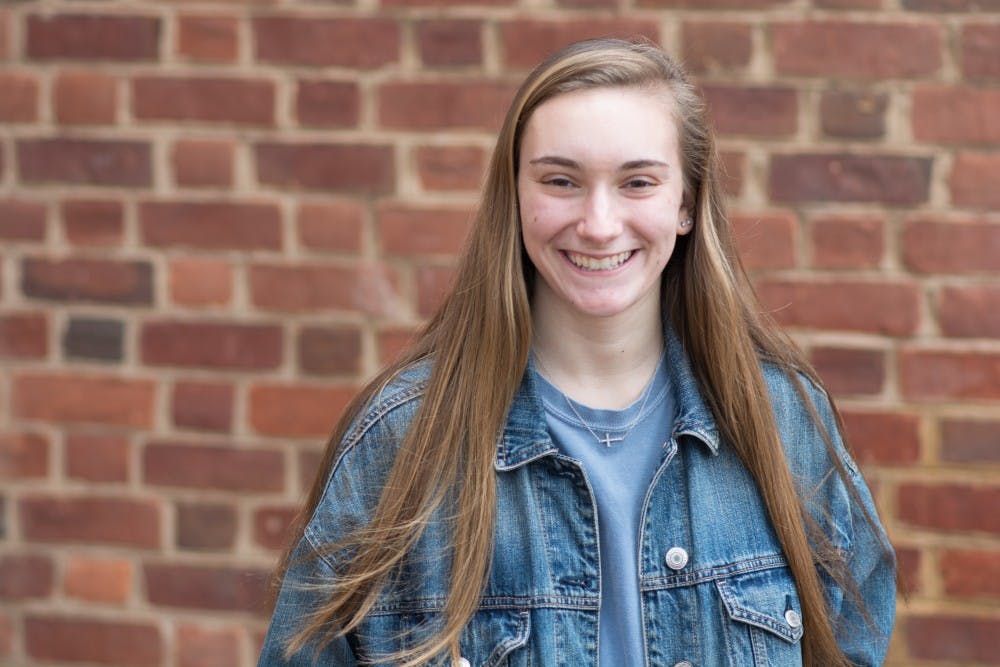Like most kids in my hometown, I started out playing sports when I was around four years old. I began with soccer, then dance, then basketball, volleyball, tennis and my most recent addition, golf. Simply put, sports have been a constant in my life, and since the age of four, I have not gone through a single year without being on a team. Of course, that was before coronavirus.
At the University, I joined the club volleyball team. After my high school team won our state championship, I swore I wouldn’t play competitive volleyball again. However, when fall rolled around my first year, it just felt wrong to not be in a gym and trying out for the sport I have always played, so I caved. Needless to say, I have absolutely loved my time on Virginia women’s club volleyball, especially winning a national championship my first year.
Cue the pandemic. Social distancing restrictions prevented our team from holding tryouts this fall, and we cannot reserve indoor court space, which makes it impossible for even returning players to practice. Our team has resorted to playing beach volleyball and having to use nets positioned at the height meant for men’s volleyball — I can barely touch the tape when I’m jumping. Regardless of these less-than-ideal conditions, I treasure the time I still have to play volleyball because I’m not sure if I will ever get to play competitively again.
All of this melodrama aside, I’ve used this time to find a new refuge in professional sports. I’ve been a big Washington, D.C. sports fan for as long as I can remember. I went to my first Nationals game when I was eight years old, and I still vividly remember that day — I was so excited to partake in such a vibrant community, cheering for the team and feeling proud of the accomplishments of people I didn’t know but who still collectively represented me and my community.
Ever since that game, I have gone to baseball games almost every summer, I have watched pretty much every Washington football game — even though most times it’s hard to look at the screen — and I have loved experiencing the excitement of Capitals’ hockey games. I must admit, the only professional sports league I really don’t watch is the NBA. I’m sorry, I love basketball, but I simply cannot watch players travel and not play defense for almost two hours. It’s painful.
Before this pandemic began, I honestly don’t know how long I had ever gone without watching or playing sports, so when sports leagues started canceling their seasons, I knew this pandemic was serious.
But as sports began to return a couple months ago, it completely revitalized my spirit. Knowing that there is a game waiting to be watched on my screen suggests that we could be getting out of the thick of quarantine. Some players are now able to finish their seasons that were on hold for about four months. Teams are finally getting to celebrate championships. And though it doesn’t feel normal since most stadiums and rinks still sit empty, watching players get to play their sports gives me second hand excitement. Sure, I might not be able to play my sport, but I get to watch these insane athletes fight tooth and nail to win a game, and I get to see their drive and determination.
Sports, beyond just serving as something to look forward to, have also been a great indicator of hope for me. These leagues have done their best to get their teams on the court, pitch, field and ice. Some of these players have been separated from their families for two months, but they continue to show up and play on.
Having professional sports back on TV has made me excited for a future that does not seem so far off. The Kansas City Chiefs have very few fans in their stands, but it’s still more than zero. The French Open is inviting onlookers into the Roland Garros stadium in Paris, France. Improvements are being made, even though they seem so small right now. If anything, watching professional sports on TV has made me want to attend any and every sports game in person as soon as it is safe to do so.
Sports have always had a way of instilling hope in people when the odds were stacked against a team or a player. Fans will rally behind the underdog knowing full well that a win is not likely for them — yet they will still hope.
That is the story of the most recent Stanley Cup champions. The Tampa Bay Lightning had a great regular season. However, they lost last year in the first round of Stanley Cup playoffs. The team was very good, but their ability to carry that skill all the way was precarious. Interestingly, the Stanley Cup champions looked to Coach Tony Bennett and the Virginia men’s basketball team as inspiration.
They looked to the underdog, the team that had lost the first round and made history in the worst way possible. They looked to a team who rebounded and came up winning the entire tournament the very next year. This is what sports is all about — inspiring each other, across leagues, across age groups and bringing hope to seemingly hopeless situations.
This is what sports can do in these times of uncertainty — bring joy in the celebration of teams’ individual wins, but also to bring hope for the future of sports and the future of our country. Having sports has not only kept me entertained during this time, but has also kept me focused on living life to its fullest extent, even if that extent may be limited.







